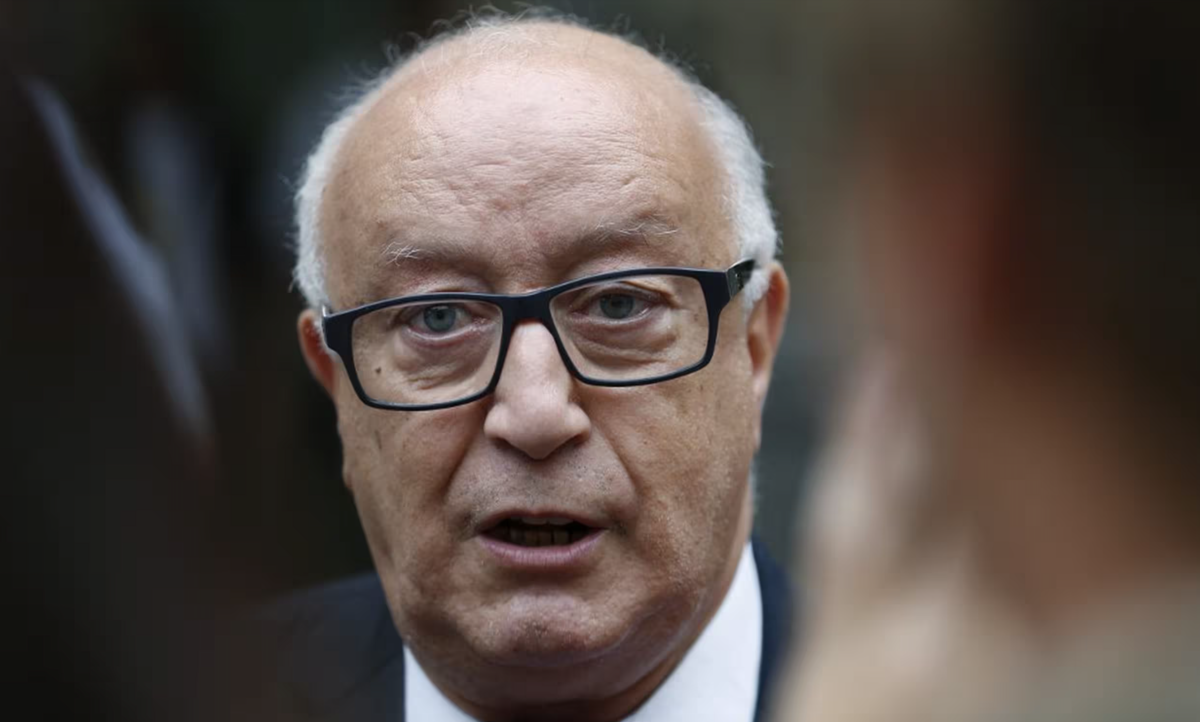Last Friday a young Muslim worshipper, Aboubakar Cissé, was stabbed to death at a mosque in the small town of town of La Grand-Combe in southern France. The suspect in the case fled but has since been arrested in Italy. The brutal killing of this young man has prompted a reaction of grief, anger and political controversy. As Mediapart has reported, though the government has condemned the killing, it was widely seen to have been slow to react to the tragedy in comparison with other cases, and has been accused by sections of the Left of pandering to Islamophobia.
In particular, hardline interior minister Bruno Retailleau has come under fire for his stance on Islam and in particular his antipathy towards the Islamic headscarf or hijab. Éric Coquerel, a Member of Parliament for the radical-left La France Insoumise party, said: “Islamophobia is sadly stirred up by quite a few people in the government. I am thinking, for example, of Mr Retailleau, with this sort of war he's waging against a single religion.”
Meanwhile on Sunday members of the community in La Grand-Combe, a former mining town, held a march in solidarity for the murdered man and his family. Here a deep sense of grief and shock was mixed with anger at the political reaction to the killing. “Of course there's double standards. You can see it in the words used. If it had been a white person, they would be speaking of a terrorist killing,” said Chérifa, one of those taking part in the march. “As a member of the Muslim community, I had to be here to support the victim’s family, but also to denounce the rising Islamophobia in politics, the media, and society. It's around us all the time.”
Following the killing Mediapart spoke to Abdallah Zekri, rector of the Sud-Nîmes mosque in southern France and vice-president of the Muslim representative body the Conseil français du culte musulman (CFCM). He himself took part in the march at La Grand-Combe in memory of Aboubakar Cissé.
In the interview the senior Muslim cleric attacked the government's weak reaction, particularly that of minister of the interior Bruno Retailleau. He voiced his concern, too, over the stigmatisation of Muslims, who he said wanted to be considered as “full French citizens”.

Enlargement : Illustration 1

Mediapart: You took part in the march in memory of Aboubakar Cissé in La Grand-Combe. How did it go?
Abdallah Zekri: Everything went very well, there were a lot of people, more than one thousand. We were very pleasantly surprised; we did not expect such a turnout. All religious faiths were represented. People are very moved by the horror of the crime committed against Aboubakar and wanted to show their support. Today, Muslim worshippers felt both happy and reassured by this show of solidarity.
Mediapart: What's your reaction to this murder?
A.Z.: The current political climate only encourages such acts. Muslims are attacked morning, noon and night on certain news channels. We're blamed for all the country’s ills, and there's a constant confusion between Islam and Islamism. What worries me even more is that we're entering an election period, with the municipal elections in 2026 followed by the presidential election in 2027. I fear Muslims will once again be vilified, subjected to hateful speeches and stigmatised.
Mediapart: How do you judge the reaction of the authorities?
A.Z.: I was shocked by the silence of the authorities. Worshippers are somewhat disappointed that the prefect [editor's note, the local state representative] did not come. After three days [editor's note, Aboubakar Cissé was killed on Friday], we still haven't seen him. He should have come to the scene, shown support and condemned what happened, as he did when there was an attempted arson against a synagogue. The prime minister [François Bayrou] issued a simple tweet, and that only 36 hours after the murder. The minister of the interior [Bruno Retailleau] did the same, a mere tweet, and waited until Sunday to come. And even then, he did not attend the march, choosing instead to stay at the sub-prefecture in Alès [editor's note, about ten miles away].
Mediapart: Is there a sense of fear within the Muslim community in the Gard département in which La Grand-Combe is located?
A.Z.: Yes, worshippers are fearful for their physical safety, especially as the perpetrator has not yet been arrested [editor's note, he was speaking before the suspect was detained in Italy]. They're also anxious about the hateful rhetoric heard in some media outlets and on social media. We receive letters with coffins drawn on them, messages such as “Go back to where you came from”, “Islam, a filthy religion”. Sadly, people have become so used to getting such letters that they no longer bother filing complaints, because every time they're told that the sender can't be identified, and so the case is closed.
Muslims are fed up with hearing the same thing over and over again and standing in long queues at police stations to lodge complaints about threats or insults. We're asking to be treated as full French citizens, not second-class ones.
---------------------------------------------------------------------------
- The original French version of this interview is here.
English version and additional reporting by Michael Streeter


